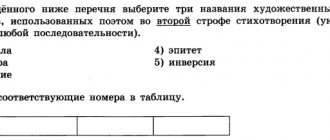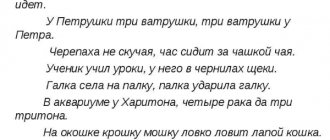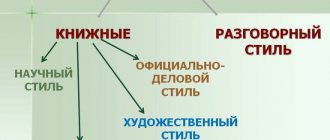Welcome words from the presenter at the concert
The main role is played by the introductory words of the presenter at the concert, because it is very important to capture the viewer’s attention from the first moment.
In order to start the concert correctly and interest the guests, the presenter must have oratory skills and follow a pre-drawn script.
Most speakers use a standard greeting pattern.
The presenter greets the assembled spectators:
- “Good evening, dear viewers!”
- "Greetings, ladies and gentlemen."
- "Dear friends! I am glad to welcome you to our concert”;
Next, you need to voice the purpose and name of the event.
Example for the Victory Day holiday:
“On this wonderful evening, we want to honor the memory of all those who left us defending our country.”
You can start the Mother's Day holiday with a quatrain about mom:
“Mother’s Day is a worthy, good holiday,
Who enters the family like sunshine.
And isn’t it nice for every mother,
When honor is rightfully given to her.”
Let the viewer understand why he came to the concert and why it is so important:
“There are people in this room without whom this event would not have taken place. Thanks to your contribution, we have the opportunity to help those in need and change the fate of many suffering people”;
- Tell us briefly about the event itself and what is included in the concert program. For example, dances, songs or small performances.
- Announce which celebrities, experts or politicians are invited to the event.
- Tell what issues will be raised during the concert. For example, a concert is dedicated to war veterans or nostalgia for the Soviet Union.
- And the last stage: you can finish the introduction and pass the floor to another presenter or start speaking immediately.
When giving a speech, one must not forget about the audience itself: the presenter must mention the contribution of the audience, explain why their presence is of great importance.
Greetings from the presenter
This is the easiest way to open a concert program. It does not require any technical means. A script that includes what the presenter has to say is sufficient. This option is convenient for concerts of classical music, art songs, rock bands - in a word, where the composition of the participants is more or less homogeneous, and the signal to start is given in some well-known way (for example, the third bell). Check your microphones before the concert. Wait a few seconds after the third bell - the audience should take their seats and calm down. Come on stage and say hello. Then tell us exactly what the audience will hear and who will speak. If the concert is dedicated to some significant date, tell us about it. When opening a subscription concert, do not forget to indicate the subscription and concert number.
Leads to ditties at a concert
In order to add variety to the act and amuse the audience, you can write a liner that needs to be said before ditties or songs. An eyeliner is a short text in prose or poetry.
What should be mentioned when writing such a text? If the participant is performing with his mother, you can mention in the liner how much he loves her.
For example:
“Mommy, come here quickly,
“Daughter and Mom” - our duet!
There is no sweeter you in the world,
There are no relatives or closer ones either!”
Movie or slide film
This option is suitable for themed concerts dedicated to state and professional holidays, anniversaries, etc. Groups working in different genres can participate in the program, so first you need to somehow define the topic. Pay close attention to the video sequence. For example, for a concert dedicated to Victory Day, wartime footage is suitable, for International Women’s Day - stories about the work of women in a city or a specific enterprise, for a company anniversary - a video or a series of slides telling about the life of the team. In this case, the signal for the start of the concert will be the turning off of the lights and the appearance of a screen before the eyes of the audience - empty or with a still image. After a few seconds the video should start. After the video, the presenter can come on stage, say hello, congratulate you on the holiday and announce the next number. By the way, recently a form of entertaining has become increasingly popular, when the presenter does not go to the microphone, but sits behind the scenes.
Poetic summaries for songs
Before singing a song, the performer may recite a funny rhyme to amuse the audience. The theme of the liner depends on the lyrics of the folk song and who the participant is singing with.
In a poetic summary, you can mention your partner, joke, draw attention to the situation, or make a small announcement about the song.
Sample:
“Together we are not upset,
Everyone smiles at each other
And in a great mood
We are engaged in singing."
Musical introduction
This option is somewhat akin to opera or ballet, when the signal for stage action is given by the orchestra, which begins the overture. For the musical introduction, you should choose a piece that the public associates with the theme of the concert. For example, the march from the movie “Belorussky Station” is suitable for Victory Day, the song “Five Minutes” is suitable for New Year’s Eve, and “The Puppy is Missing” is suitable for a children’s concert dedicated to animal protection. After the musical introduction, as in the previous case, the presenter greets and announces the next numbers.
Soundcheck
Linkin Park during soundcheck.
Having collected everything they need at home, the group goes to the concert venue. All pre-concert time, including sound check, is another stage of preparation for the concert.
Find out the name of the sound engineer
There are many different stories circulating about sound engineers in clubs and concert venues, some good and some not so good. One way or another, treat the sound engineer the way you would like him to treat you.
The club sound engineer is as much a participant in the preparation for the performance as the band’s musicians. Be grateful to him for any useful actions related to your sound and communicate with him as equals.
Set up all instruments
Tuned instruments are another factor in a successful performance.
If there are several guitars, tune them all into the appropriate tuning. Re-tune your guitars a few minutes before going on stage. The same applies to the rest of the instruments that are used in the group’s music - balalaikas, domras, banjos, violins.
Check the tuning of drums, keyboards, samplers and synthesizers. Test the main vocal, backing vocal and instrumental microphones. Everything should sound and work like a clock.
Set the volume to medium
Medium volume levels give the sound engineer more control over the band's sound. Don't crank up your monitors or amplifiers so much that they start to wind up.
Solve the lack of volume with the participation of a sound engineer - let him turn up the volume on the remote control.
Check out the maximum available effects
Check the sound of all pedals. Test the sound of the guitars on a clean, crunch, or overdriven channel and set each to the correct volume level.
Choose songs for soundcheck that will best test your sound.
In the repertoire of any group there are songs that are the basis of the sound of the group. For soundcheck, it is better to use them rather than improvise or play covers.
Listen carefully to the mix
Pay attention to the sound of the whole group during soundcheck, and not to just one person. How balanced is the sound? Are the drums coming to the fore? Do the vocals get lost in the mix?
Get ready mentally
Another component of a successful performance is the right morale. Set yourself in a positive mood and be prepared that the performance can start at any moment due to the fault of the musicians who did not arrive or who left.
The goal for your group is to tune in and deliver a performance that will make even your moms proud.
Chat with other bands and musicians
If the concert involves the participation of other groups, get to know those with whom you will be sharing the stage.
Turn on your amps a few minutes before you go on stage.
The amplifier tubes should warm up a little. If there is no tube equipment on stage, still turn it on a little earlier - it won’t make it any worse.
WHAT NOT TO DO BEFORE THE CONCERT
Don't drink alcohol
Do not refuel with doping on the way to the concert venue or before going on stage. Preparing for a performance won’t get any easier, and you definitely won’t play any better. Leave all the delicious things for later.
Don't give your equipment to other musicians
Helping other musicians is good, but don't just give away your equipment. Before you pretend to be Mother Teresa, answer a few simple questions:
- Are you sure that the equipment will be returned to you?
- Are you sure that the equipment will not be broken?
- Can you play the entire concert on the minimum available equipment?
Don't turn soundcheck into a rehearsal
One or two songs are enough for the band and sound engineer to check the sound. Preparing for a performance is not a rehearsal or a jam session. Willful behavior will not add advantages to the group's karma and will show your disrespect for other concert participants.
Don't play while tuning the drums
No matter how bad the drums sound in the club, do not interfere with the sound engineer and drummer setting up the drum kit. Any high-pitched sounds that differ in frequency from drum sounds will make life difficult during tuning.
Don't leave equipment turned on
After sound check, turn off all electrical or battery powered equipment. Batteries may run out at the most critical moment, and a power surge may occur in the electrical network. The public won't listen to excuses like your amp burned out or your batteries are dead.
Don't lose concentration
Preparing for a performance requires the proper level of responsibility. Be as focused as possible from the moment you enter the concert venue.
If everything is in order with the equipment, do not relax, because you have not yet performed in front of the public. Other concert participants, listeners and the local sound engineer expect professionalism from each member of the group.
What to do during a speech to make it successful
Everything has been checked, adjusted, adjusted and ready for work, which means preparation for the concert is nearing its end. However, before going on stage, the group has a reserve of time that can be spent with benefit for themselves and their team.
Make a setlist
If your music is not based on improvisation, make a list of songs to perform. The order of the songs should match the order in which you will play. If something happens, you can make adjustments to the setlist during the concert.
When compiling a setlist, try to choose the first song that will attract the attention of the audience from the first chords. Of course, you can attract attention with your own appearance, but it’s better to start a concert with a bright song. An interested audience will provide better support to the group, and it will become easier to play.
Relax
If there are a few minutes left before going on stage, then you can relax and not worry about anything. Listen to the advice of the sound engineer and remember that the success of the concert now depends on the mood of the audience.
Relaxing does not mean losing composure and concentration.
And further. At this point, you no longer have to worry about the sound of the band. No one in the room cares.
Look your listeners in the eyes
Maintain eye contact with the audience—don't lean into the neck or body of the instrument.
Tell the sound engineer what you're missing
The sound engineer is always present in the hall. If the preparation for the performance went well, and contact with the sound engineer is established, do not hesitate to ask him to make adjustments to the sound. Are you having trouble hearing guitars or are there too many of them? Ask the sound engineer to correct the sound on the remote control.
Remember that things can go wrong
Don't be afraid or confused if the performance doesn't go according to plan - this is normal for all concerts. Be prepared for any development of events.
If one of the musicians has problems during the performance, play an instrumental composition or communicate with the audience so that your bandmate can correct the problems.
WHAT NOT TO DO DURING A PERFORMANCE Do not plug in your guitar while tuning.
Adjust between songs, but don't forget the MUTE button.
Don't repeat the band's name every break
State the name of the group at the beginning of the speech. Don't repeat it at every opportunity.
Don't allow long pauses between songs
While the bassist is tuning the instrument, the vocalist and band leader have the opportunity to work with the public - promote a single, a website, merch, or just communicate with the public.
Don't change your equipment settings on stage
Preparations for the concert have already taken place! If only you don’t like a sound, it doesn’t mean everyone doesn’t like it. Free rotation of knobs on stage can ruin the sound of the entire band.
Get off stage quickly
If you are not the headliner, leave the stage as soon as possible. Besides you, there are other groups participating in the concert, whose time is strictly limited. Don't create problems for anyone with your slowness.
Don't be afraid of the public
Forget timid apologies, remove the uncertain look, get rid of fear. You are the band with the best performance of the night! Play so that everyone remembers you!
Parade of participants
In this case, each group prepares a very short skit from their performance. This option is preferable if the program includes many dance and theater groups. The phonogram must be written in advance. It can be a whole piece or a medley. It is necessary to clearly define the order of the speakers, because they will have to go on stage very quickly. The duration of the performance is minimal; each group must walk across the stage no more than two times, performing several dance steps or the most characteristic movements of theatrical characters. For singers and instrumentalists, this option is not very good, although in some cases it is possible.









